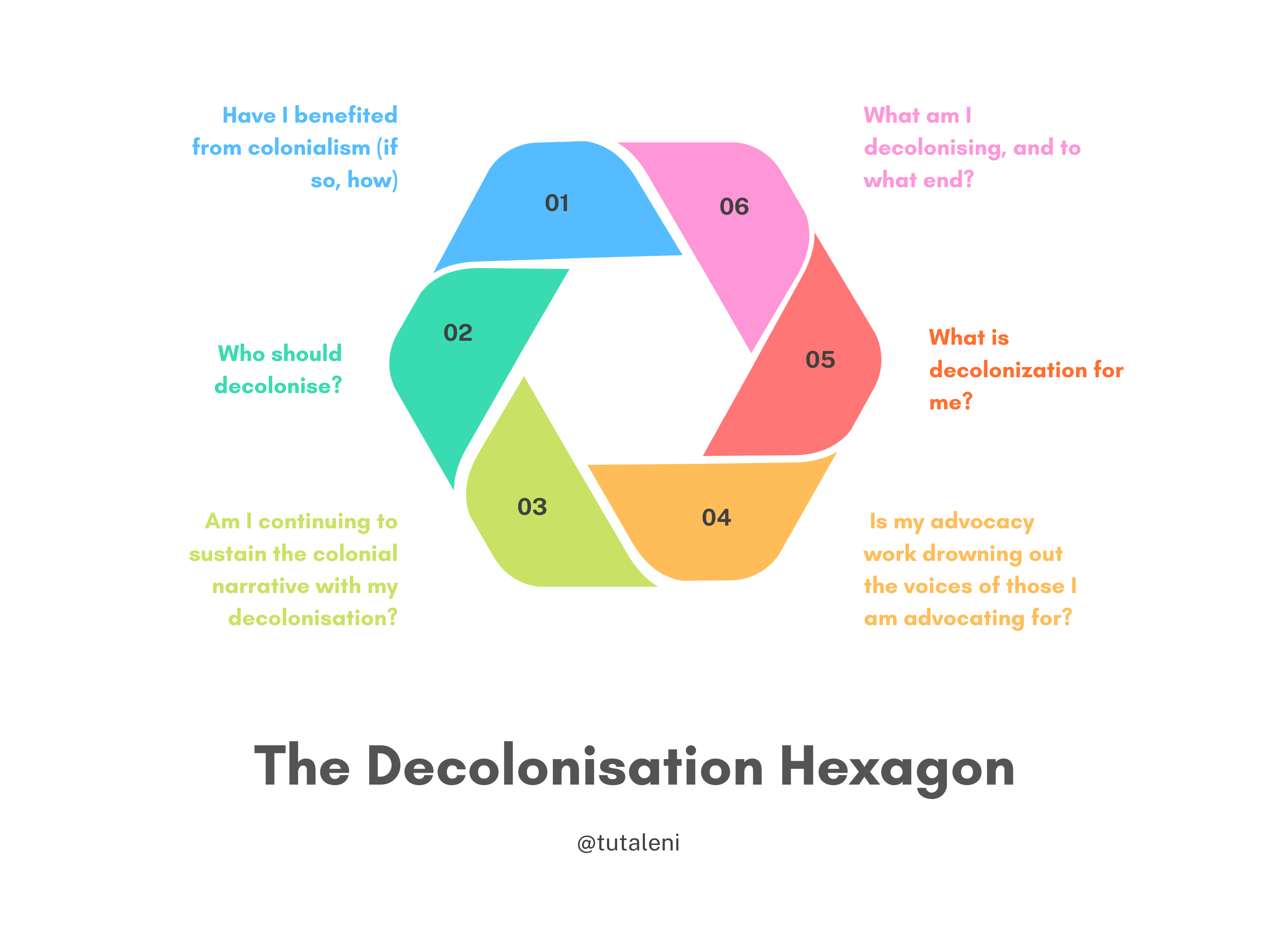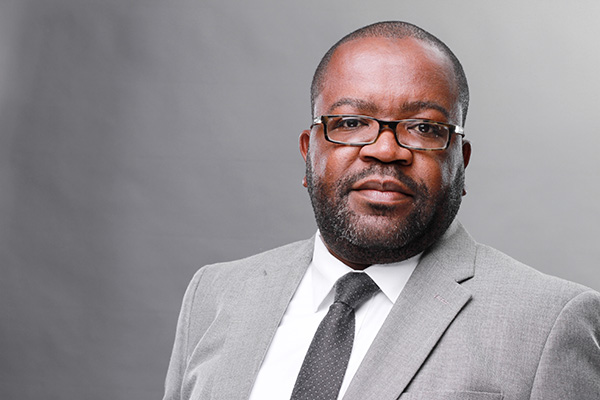The Decolinsation Hexagon

I have always had a love-hate relationship with the term decolonisation, which I have publicly made known in different forums. My love stems from the admiration of scholars who have produced fantastic work under the decolonisation banner that advocates for freeing our minds and urging us to be critical of the selves we assumed or inherited the post the official colonial period. Perhaps no one captures this better than Marcus Garvey, who argued (or maybe promised) in his 1937 speech “The Work That Has Been Done” that “We are going to emancipate ourselves from mental slavery, for though others may free the body, none but ourselves can free the mind. Mind is your only ruler, sovereign.” Of course, many of us associate these words with Garvey’s countryman Bob Marley in his “Redemption Song.”
The hate is based on my disdain for colonialism and everything associated with it. I find it difficult to attach the word colonialism with anything positive. I struggle with the idea that I can derive positive outcomes from using a term associated with so much vile evil. Professor Audre Lorde makes a similar argument in her work on patriarchy, more specifically in her essay “The Master’s Tools Will Never Dismantle the Master’s House” when she wrote, “What does it mean when the tools of a racist patriarchy are used to examine the fruits of that same patriarchy? It means that only the most narrow parameters of change are possible and allowable.” So, borrowing (albeit audaciously) from the words of Professor Lorde, when it comes to decolonisation, I ask myself similar questions – What does it mean when the tools (as in words, terms, models) of colonialism are used to examine the fruits of that same colonial project? It means that only the most narrow parameters of change are possible and allowable.”
Is the solution for everyone to stop using decolonisation as a term (I seldom use it) and adopt a different word? I don’t know. I am, however, arguing for continued criticality. Crucial to decolonising is asking ourselves what our role is in the colonial project and if we are sustaining the thing we are trying to dismantle.
Perhaps before we use or while using the term, the method, the approach, or the theory of decolonisation, we can also engage in reflective practices by asking ourselves the following questions:
- Have I benefited from colonialism (if so, how)?
- Who should decolonise?
- Am I continuing to sustain the colonial narrative with my decolonisation?
- Is my advocacy work drowning out the voices of those I am advocating for?
- What is decolonisation for me?
- What am I decolonising, and to what end?
To truly emancipate ourselves mentally, we must continue to critically examine the tools we use to dismantle and be fearless in creating new tools as needed.
Works Cited
Garvey, M. (2018). Emancipated from mental slavery: selected sayings of Marcus Garvey. The Mhotep Corporation.
Lorde, Audre. “The Master’s Tools Will Never Dismantle the Master’s House.” 1984. Sister Outsider: Essays and Speeches. Ed. Berkeley, CA: Crossing Press. 110- 114. 2007. Print.

